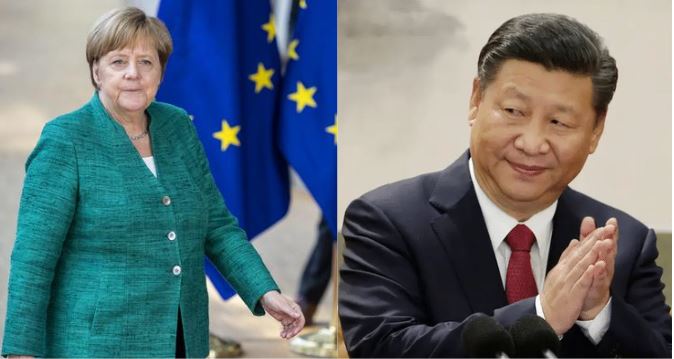Since the outbreak of the Coronavirus, which also marked the beginning of the US-China cold war, most of the countries have chosen a side. However, the European Union remained confused, shuttling between pro-China stance of the executive and anti-China stance of its legislature.
“It is impossible to put our relationship with China into a single box; it is too complex,” the foreign minister of European Union, Josep Borrell, said a few weeks ago. “It does not fit into a single category. Is it an ally or a rival? A partner or a competitor? It is both,” added the European Union’s top diplomat.
Many countries like Germany and Italy openly supported China and a few others like Sweden, Denmark, and the Czech Republic stood up for the United States, and therefore, European Union has been unable to put a cohesive response and pick a side.
But, as Germany- the de facto leader of the European Union- was on the Chinese side, it was expected that ultimately the block would turn to the dragon. And finally, it looks like Germany has succeeded to convince the other members of the Union to pick up the Chinese side.
As the block lifts travel restrictions from July 1, the Union has decided that flights from China would be allowed to EU member countries while those from the United States would not.
China is suffering from a second wave of Coronavirus with the latest outbreak in Beijing while the cases have plateaued in the United States, but the European Union went ahead with the opening of flights from Beijing instead of Washington. This clearly indicates that the EU has shown seven decades-old ally America exit door and has chosen the emerging power, China.
EU has decided to put the business relations with China at the forefront and ignored the human rights abuses by Beijing in Hong Kong, Xinjiang, and Tibet. China is the second-largest trading partner of the European Union, and for countries like Germany, Italy, the export market is too important to speak up on human rights issues. These countries fear that China might slap tariffs on exports- like they did in the case of Australia- if the national government criticizes Beijing’s actions.
Recently, the EU and China held the 30th round of negotiations over a ‘joint investment summit.’ It was to be finalized this year and the announcement would have come in the 22nd bilateral summit but was postponed due to the pandemic. The 22nd bilateral summit took place on Monday through video conferencing, in which European Commission President Ursula von der Leyen and European Council President Charles Michel – the EU’s chief executive and chairman interacted with Chinese Premier Li Keqiang and President Xi Jinping.
China lured the EU with a comprehensive trade and investment deal in the next few months, which looks very unlikely with the US given the fact Trump and Merkel have very cold relations. China has argued that if the EU-China Bilateral Investment Treaty (BIT) is signed before the US-China trade deal, it would help EU nations to get access to the Chinese markets.
So far, the European Union has been indecisive on China right from the outbreak of Coronavirus disease. The 700 plus member strong European Parliament, as well as the parliament of member countries, has been very vocal against the Chinese Communist Party, but, the Executive branch of the EU as well as national governments, have been more cautious in dealing with the dragon.
It looks like the executive has sidelined legislature in order to go ahead with China in US-China cold war, and business relations have been prioritized over human rights issues.
The executive branch fears Chinese sanctions and tariffs of exports to China, which will hurt the companies amid these testing times when demand is already very low due to pandemic lockdown.
The European Union desperately needs Chinese investment as well as access to the Chinese market to revive its economy; therefore, the executive is avoiding confrontation with China by choosing to ignore human rights issues.
